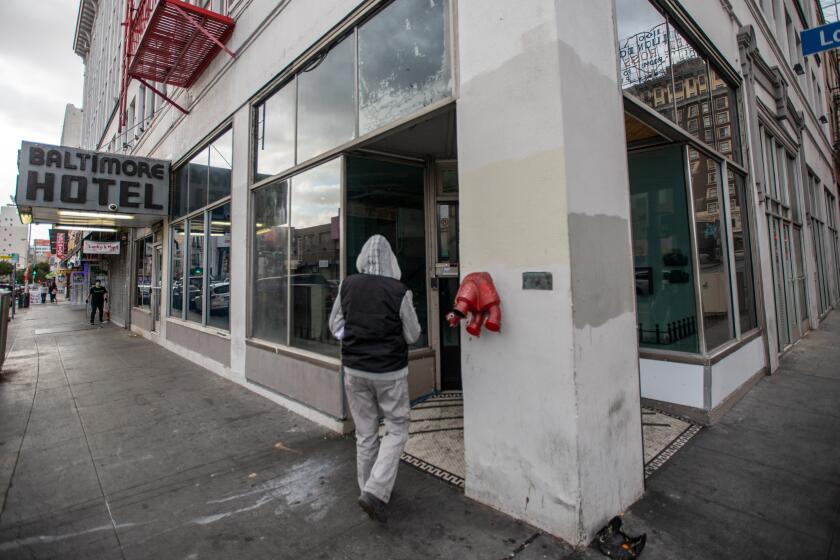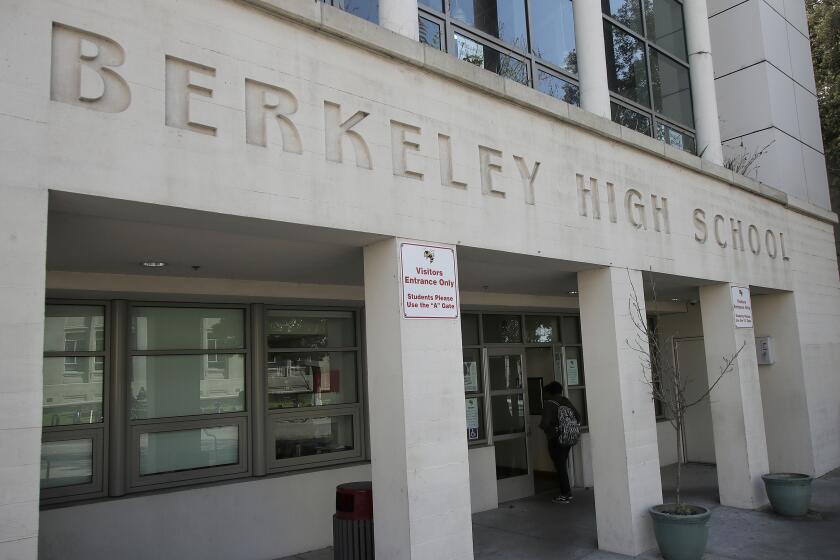Not about notification
Proposition 4, which would require parental notification before a minor could have an abortion, is as noxious as the two previous, nearly identical ballot measures that sought to turn back the clock on abortion rights. And Californians are as pro-choice as they were back when those measures were defeated. So why is Proposition 4 leading, though narrowly, in recent polls?
Surely voters no longer are misled by the emotional appeal of the title, “Sarah’s Law,” which refers to a girl who wasn’t named Sarah, didn’t live in this state and wouldn’t have been covered by such a law.
The supporters of Proposition 4 have managed to frame their campaign around two ideas, both misleading, that hold particular appeal for voters. One is that, in addition to allowing girls to seek court permission for an abortion, it will give those who justifiably fear telling their parents an “out” by allowing them to notify another adult relative instead. This would indeed give the measure more credence, if it were true. But in order to use it, the girl would have to accuse her parents, in writing, of child abuse, with the accusation to be forwarded to law enforcement authorities. It’s the equivalent of telling girls they can get an abortion by walking into a police station and having their parents arrested.
The campaign also assumes a kinder face by saying that this is about protecting girls from adult sexual predators; newly knowledgeable parents would put an end to the sex crimes. But a study released in September by UC San Francisco found that few girls have relationships with significantly older males and that the percentage of those who do does not appear to change with notification laws.
In fact, notification laws don’t achieve most of the supposedly desired results, according to the report. A comparison of Minnesota, which has a notification law, and Wisconsin, which doesn’t, showed that girls who went to abortion clinics were just about equally likely to tell a parent. Pregnancy rates do not fall in states with notification laws; in some states, abortion rates fall but teen birthrates rise, and many more girls report leaving the state for an abortion.
Perhaps because they put off telling a parent, or go to court to avoid doing so, girls in states with such laws are likelier to get an abortion later, during the second trimester of pregnancy, which increases the chance of complications. Clearly, protecting the health and safety of girls isn’t the key consideration here. Proposition 4 is a first step toward reversing hard-won and increasingly threatened reproductive rights. Californians, with their strong record of upholding such rights, should see through the ruses and vote no on Proposition 4.
More to Read
Get the L.A. Times Politics newsletter
Deeply reported insights into legislation, politics and policy from Sacramento, Washington and beyond. In your inbox three times per week.
You may occasionally receive promotional content from the Los Angeles Times.






